Strange Scaffold is known for crafting peculiar, immersive gaming experiences that invite players to ponder intriguing subjects. Their works like El Paso, Elsewhere whisk us to unsettling worlds to uncover deeper meanings through journeying. In Clickolding, they’ve crafted another thought-provoking creation centered around a simple yet hypnotic act—clicking.
In Clickolding, players find themselves in a dreary motel room facing an ominous figure. All that’s asked is to click a counter 10,000 times with promises of reward. As you click away, the man watches in silence. His murmurs offer glimpses into personal tribulations yet leave much else shrouded in mystery. Will the tale be illuminated by the journey’s end?
Clicking proves a trance-like task that soon engrosses fully. Yet in that absorption strange feelings stir, as realities beneath the surface seem woven through act and atmosphere. Strange Scaffold crafts an unsettling yet inquisitive space to ponder what introspective paths clicking’s rhythm may guide our wandering minds along. Their experiments continually uncover curious avenues to challenge us while keeping company along the way.
Clickolding In Action
Upon starting Clickolding, you find yourself in a worn motel room, alone but for an ominous figure looming expectantly near. The premise is laid out—click the counter 10,000 times, and rewards will follow. Followed too are instructions for basic controls that form the core gameplay. Movement involves navigating the cramped space via point and click, hindered by stiff turns that capture the enclosure.
At the center sits a simple counter, responsive to each press. Repetitive clicking soon holds sway, with pace impacted by speed of taps. For some though, holding provides a steadier option to let clicks flow unchecked. Either path routes to the promised goal yet through divergent journeys—one an active taskmaster, the other a detached observer.
Herein lies both Clickolding’s draw and potential barrier. Pacing drives the mechanics, whether fast clicking to expedite conclusion or lingering to prolong exposure. But it also breeds monotony that, without shifts, sees focus wander. To offset this, additional interactions are doled out, breaking routine to rediscover grip. From adjusting blinds to retrieving keys, added tasks may disrupt the trance yet bolster resolve to see the end.
Clickolding succeeds in embedding its core loop, for better and worse. Pacing gives power over pace, for user and game alike. Prolonged clicking threatens tedium, while a speedrun risks missing narrative beats. Supplementary actions provide light relief yet risk seeming arbitrary. In balancing accessibility, absorption, and prolonging intrigue, clicking finds both highlights and hurdles in its simple but hypnotic mechanics.
The Unease of Clickolding’s Motel
Strange is the setting for Clickolding. Upon starting, you find yourself constrained within the drab walls of a run-down motel room. Peeling wallpaper and worn furnishings give the surroundings an air of melancholy. Yet more unsettling is your company—a masked figure looming mutely by the room’s lone window.
Visually, the room excels at conveying a sense of isolation. Your view is obscured by dingy walls and limited paths of movement. Panning the camera teases what more lurks just out of sight. Technically, the production holds up, with environments nicely textured and lit to highlight signs of decay. Some janky transitions jar, yet aid the disorienting mood.
Where the room truly shines is its unsettling audio profile. Creaking floorboards and muffled voices seep through thin walls, hinting at dramas unfolding anonymously next door. Your companion remains veiled in ominous silence, leaving implied threats to fester in the mind. Only your own clicks and footsteps pierce the quiet, at once calming and amplifying your loneliness.
Throughout, an eerie filter casts the scene in an ambiguous glow. Shapes seem just beyond clear definition, preserving an unknowable, unnameable quality to events. Combined with boxy controls and obscure camera angles, the player is left uncertain of realities within these decaying walls.
In this tight technologically crafted space, Clickolding thrives at evoking a pervading sense of unease and powerlessness. Isolation from the outside world and obfuscation of interior truths heighten your reliance on the game’s enigmatic demands. Its success stems from submerging the player in an unnerving world that challenges understanding at every turn.
Unlocking Clickolding’s Complex Character Study
Clickolding wastes little time establishing an uneasy atmosphere. Its protagonist finds themselves locked in a cramped motel room with a masked stranger demanding their participation in strange acts. As the in-game clicks accumulate, so too does the tension in this volatile relationship.
Through stilted dialogue, the man alludes to inner turmoil. “I used to be able to click for hours, but my knack left me,” he sighs, his words tinged with shame. Powerlessness seeps into these revelations of lost passion. Yet beneath the horsehead costume lies instability, even menace—alluded to when our host boasts, “I have a gun, just so you know.”
Many have interpreted these unbalanced power dynamics through the lens of broader themes. Some argue the masked figure represents an addict, enthralled by feedback loops yet conscious of their futility. Others see a depiction of clients exploiting sex workers. Both readings resonate, yet Clickolding resists reduction. Its title hints at deeper psychological undercurrents, encouraging examination of society’s fetishization of metrics and achievement.
Click by click, the man gradually exposes his vulnerabilities. Regret fills his voice as he confesses, “I wish I could take my family clicking, but they say it’s unhealthy.” His full story remains untold, leaving space for understanding the complicated life that drove him here. By the story’s end, even this unsettling captor elicits not fear but empathy for the humanity beneath the facade.
Clickolding shows masterful subtlety in both crafting atmosphere and symbolism. Through a sparse yet poetic script and dynamic relationship, it challenges preconceptions and explores the darkness that unites us all. Ultimately, its depiction encourages seeing beyond surface tensions to recognize the fragile beings on either side of the screen.
Maintaining Accessibility in the Click Experience
While Clickolding’s minimalist premise offers a focused atmosphere, some find their attention drifting during its extended clicking. Those managing conditions like ADHD may struggle when there’s little beyond the repetitive action to hold interest.
It’s easy to see how the mind can wander after countless clicks. Even removing the clicking altogether via an auto-click feature does little when the pace remains static. Some breaks in routine could help—vvarying click speeds or numbers required, additional environmental changes, or brief periods letting dialogue carry the experience alone.
An optional companion app may also boost engagement for those prone to distraction. Companion experiences in other media are nothing new, allowing some players to follow along through other senses. With Clickolding, perhaps a text-based storyline could unfold concurrently elsewhere, with progression in one impacting the other.
Clickolding presents a bold minimalist premise, but pushing repetition to its limits risks losing some players. A few adaptations acknowledging human attentional limits could maintain clicking’s accessibility while deepening its impact. The creative team might also consider further experiments branching from the core clicking concept into new directions informed by player insights. Accessibility need not come at the cost of bold artistic visions.
With some adjustments, more may find Clickolding holds their focus until the unsettling finale. Its most thoughtful critique arises from many experiencing the work fully.
Parallels within Clicking’s Peculiar Realm
Within its genre, Clickolding draws inevitable links to classics, establishing the clicker formula. Cookie Clicker looms large as the progenitor, tasks becoming wilder as cookies multiply. Progress Quest too saw engagement evolve beyond mere mechanics into committed longplays.
Comparisons also emerge with Strange Scaffold’s past. Life Eater posed moral dilemmas through disturbing domestic roleplay. El Paso Elsewhere too immersed players in an unsettling world far from standard structures. Clickolding stays true to their tradition, crafting an unorthodox experience challenging expectations.
Beyond games, one flagged the experimental film Wavelength’s prolonged focus on a lonely space. A similar atmosphere is created here through isolating the player in a tense scenario, elevating clicks to an act with deeper implications. As with much avant-garde work, interpretation remains open but keeps viewers pondering long after.
While some found narrative depth lacking, Clickolding succeeds in invoking discussion through suggestion instead of declaration. Its oblique references to complex themes demand consideration, just as the director’s other projects invite multiple perspectives. Peculiar as these works may be, they reflect a studio unafraid to explore unconventional paths, bringing provocation even within limitation’s bounds.
By peering beyond superficial mechanisms, connections emerge, showing Clickolding continues its creator’s willingness to experiment boldly at the fringes. Uncomfortable it remains for some, but that discordance seems the very point, leaving thought-provoking ripples in its wake.
The Lasting Impression of Clicking
So in the end, does Clickolding achieve what it sets out to do? It leaves an impression that’s for certain, even if its message lacks clarity.
This game aims to invoke thought through subtle, open-ended imagery rather than straightforward storytelling. And it succeeds in sparking discussion, getting us to ponder the strange desires that drive our addictive behaviors. Its disquieting atmosphere effectively sets an unsettled tone.
However, some found narrative depth was lacking. While uncomfortable themes were hinted at, greater insight into its unusual characters felt needed to turn vague symbolism into real understanding.
Yet for a low-cost experimental title, it makes for a quite peculiar experience. Those engaged by its goal of introspection through interactivity may find value, even if incomplete. And its minimal yet unnerving presentation proves quite memorable.
In the end, Clickolding offers more of a starting point for contemplation than definitive conclusions. As with much avant-garde artwork, straightforward enjoyment gives way to lingering examination long after. Whether illuminating darkness or leaving shadows, it leaves thought-provoking traces in its wake.
For those intrigued by gaming pushed to peculiar new places, Clickolding makes for a noteworthy oddity. While not for everyone, it offers a one-of-a-kind venture into uncomfortable questioning well worth the minimal commitment. Its unsettling implications are sure to linger in the memories of those who face its peculiar challenges.
The Review
CLICKOLDING
Clickolding offers a disturbing yet thought-provoking look at human compulsion and social dynamics through its unsettling narrative vignette and minimalist gameplay built around clicking. While its cryptic themes and brief episodic structure may leave some desiring more depth or substance, for those engaged by its goal of introspection through unorthodox design, it stands as a notable oddity well deserving of its low cost.
PROS
- Atmospheric and unsettling environments engage curiosity.
- Minimal mechanics focus attention on open-ended narrative
- Low cost provides accessible entry to bold experiments.
- Generative discussion of uncomfortable themes
CONS
- Cryptic storytelling leaves interpretations vague
- Limited gameplay can induce tedium or monotony.
- Brevity may dissatisfy those seeking deeper exploration.
- Unorthodox design won't appeal to all tastes.
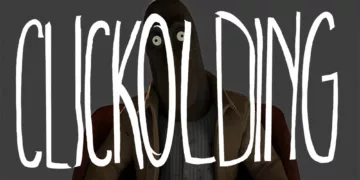








































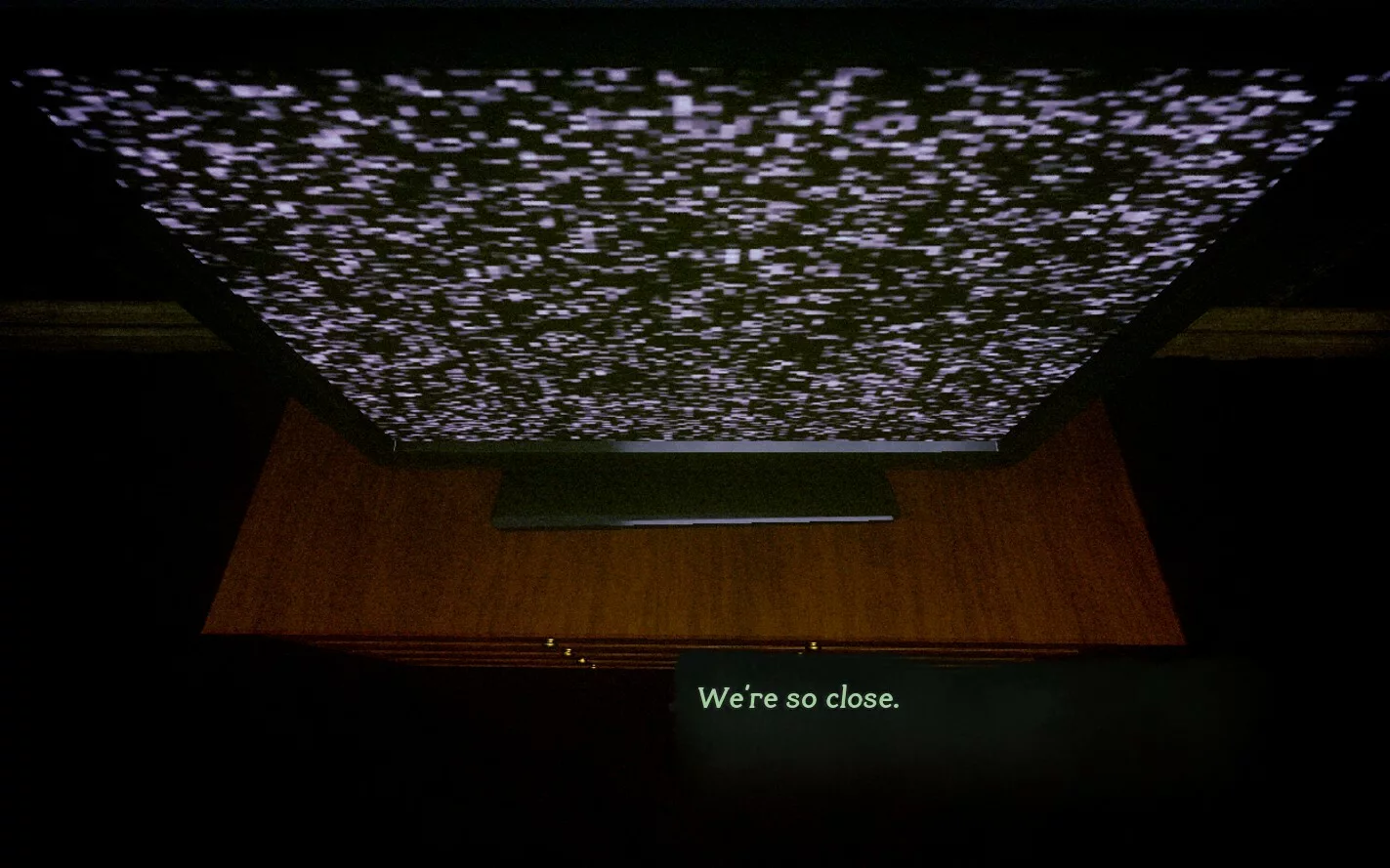
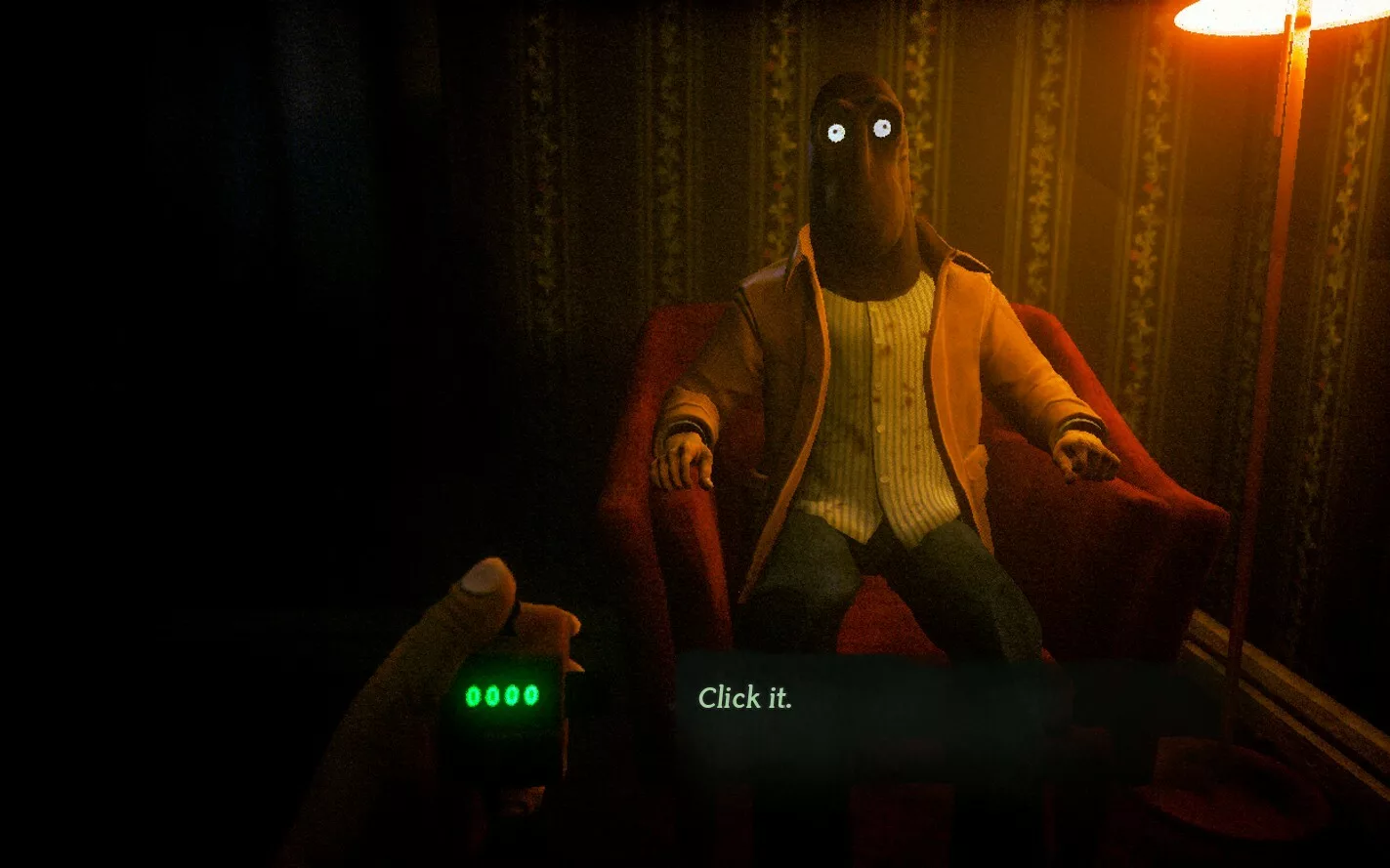
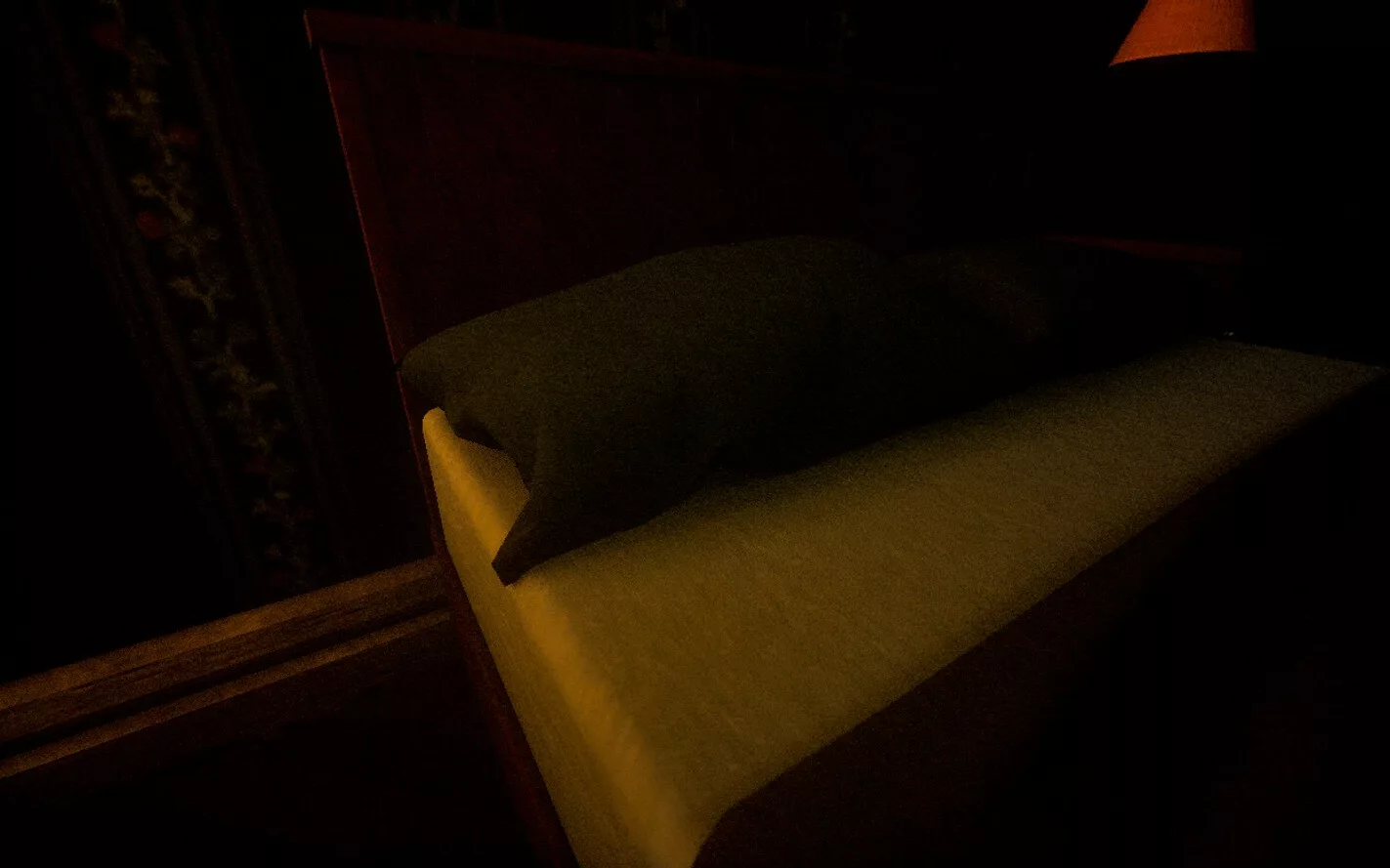
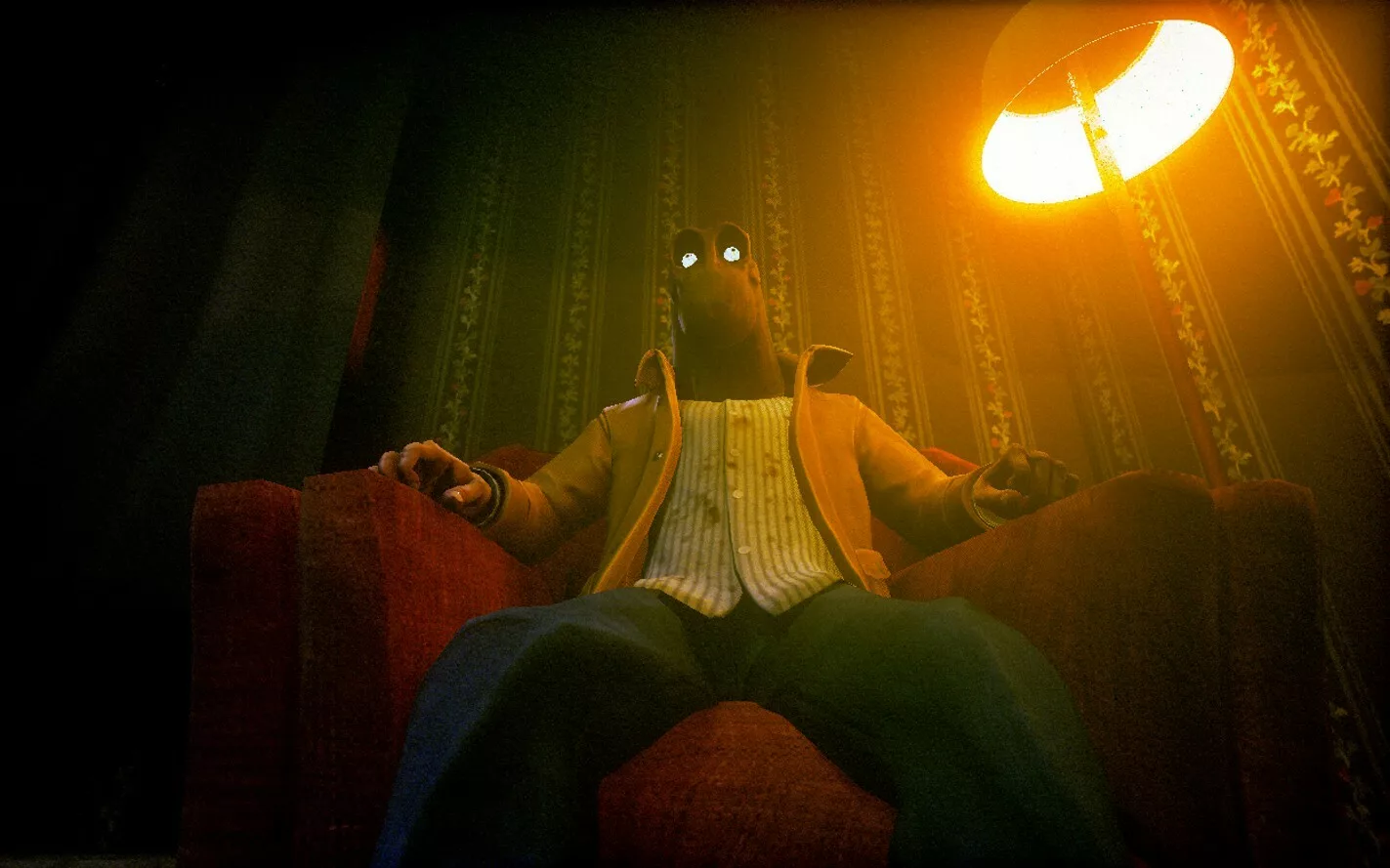









Discussion about this post